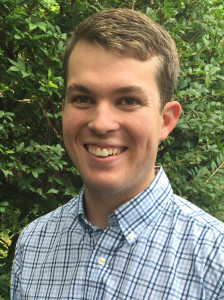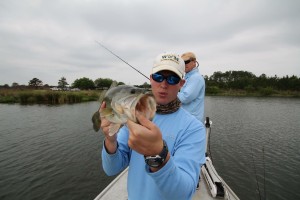
Nicholas Ducharme-Barth
Nicholas Ducharme-Barth, a doctoral student in the University of Florida’s fisheries and aquatic sciences program, has received the Sea Grant/NOAA Fisheries population dynamics fellowship.
The fellowship provides up to three years of funding to outstanding Ph.D. candidates who study ways to improve the sustainability of fish stocks that are commercially or recreationally valuable.
Ducharme-Barth learned about the fellowship from his academic adviser, Rob Ahrens, and thought it was too good of an opportunity to pass up.
“We both felt like this would be a perfect opportunity for me given my career goals as it would allow me to collaborate and network with National Marine Fisheries Service scientists as well as produce relevant and applicable research that addresses needs for both NMFS and Sea Grant,” he said.
Ducharme-Barth’s research is focused on developing tools to help scientists better understand fishing fleet behavior.
“By looking at how fishing fleets distribute spatially, react to changing regulations or a catastrophic event such as the Deepwater Horizon oil spill, this project will provide fisheries scientists and managers a better understanding of how fisheries might respond to similar scenarios in the future,” Ducharme-Barth said. “This will hopefully allow managers to implement effective regulations and take a more proactive approach to management.”
Ducharme-Barth first became interested in marine research as a youth. He grew up a block away from the Rappahannock River, a tributary of the Chesapeake Bay in Virginia. He said some of his fondest memories involved fishing before and after school and tending crab pots with his friends during the summer.
“I fell in love with the Chesapeake Bay and the ecosystems, as well as the many waterfront communities it supported,” he said.

During his free time, Ducharme-Barth enjoys fishing and swimming in the springs around Gainesville.
Ducharme-Barth also earned his bachelor’s degree in mathematics from the College of William and Mary. During his undergraduate career, he worked on population dynamics modeling of oysters with the Virginia Institute of Marine Science.
“It was through this work that I realized how much I enjoyed the unique blend of ecology, math and statistics that make up population dynamics and fisheries science,” he said. “It was at that point that I know this was something I wanted to do for my career and is what brought me to the University of Florida.”
Ducharme-Barth intends to pursue a career in marine resource management and stock assessment.
“It is truly an interdisciplinary field that allows me the opportunity to apply my knowledge and skills and work toward answering questions that touch on all of my interests,” he said.



